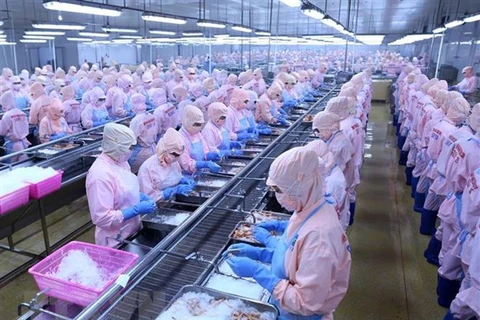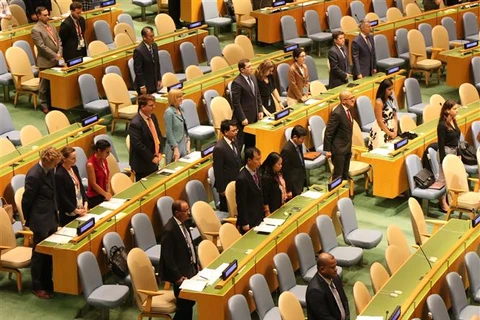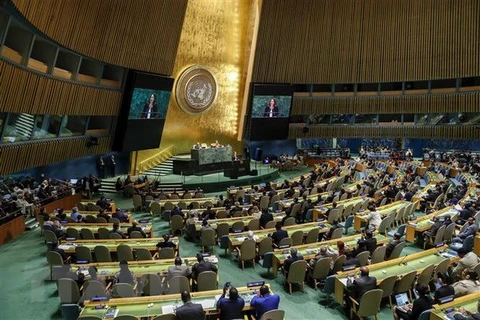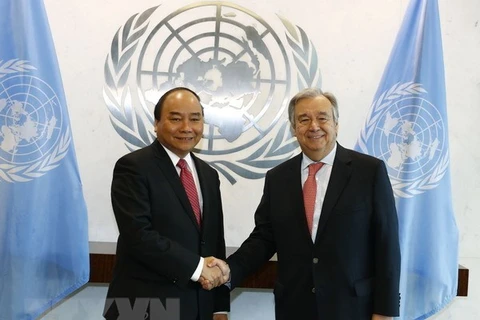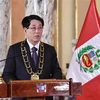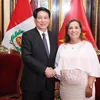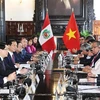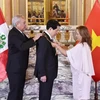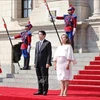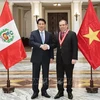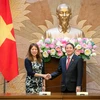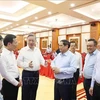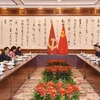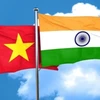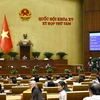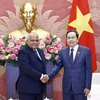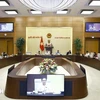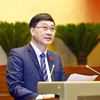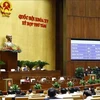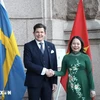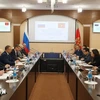 Head of the Permanent Delegation of Vietnam to the United Nations, Ambassador Dang Dinh Quy. (Photo: VNA)
Head of the Permanent Delegation of Vietnam to the United Nations, Ambassador Dang Dinh Quy. (Photo: VNA)New York (VNA) – Head of the Permanent Delegation of Vietnam to the United Nations, Ambassador Dang Dinh Quy has highlighted the country’s contributions to the global organization over the past four decades, ahead a visit by Prime Minister Nguyen Xuan Phuc to New York for the high-level General Debate of the 73rd session of the UN General Assembly (UNGA 73).
Since Vietnam became an official member of the UN in September 1977, the country has made best endeavours to contribute to UN activities in all the three pillars of peace-security, development and human rights.
In peace-security, Vietnam has been consistent in promoting basic principles of international law and the UN Charter in settling international disputes by peaceful means based on respect for independence, sovereignty and non-intervention of any state without use of force or threat to use force, Quy told Vietnam News Agency.
Vietnam has played an active part in advancing disarmament and non-proliferation of nuclear and mass destruction weapons. As a non-permanent member of the UN Security Council (UNSC) from 2008 – 2009, Vietnam has been actively engaged in efforts in political crisis prevention and peacekeeping, and put forward important proposals to protect women and children in armed conflicts, promote human rights and post-conflict peace-building and reform the UNSC.
He further noted that the joining of the UN peacekeeping missions demonstrated Vietnam’s responsibility in maintaining international and regional peace and security. Since 2014, the country has sent a number of military officers to take part in peacekeeping missions in the Central African Republic and South Sudan. In June, Vietnam was selected to become training sites for UN peacekeeping forces alongside three others in Southeast Asia – Cambodia, Indonesia and Thailand. At the same time, Vietnam’s first level-2 field hospital will leave for its mission in South Sudan shortly, the ambassador added.
Quy moved on to highly speak of the success of cooperation between Vietnam and the UN in development. With tremendous support from the UN, Vietnam is among the countries in the world succeeding in fulfilling the Millennium Development Goals (MDGs). Vietnam also volunteered to be one of nations piloting the global “Delivering as One” reform initiative and is the first country to have the Green One UN House where all UN staff in the country are brought together in a single location. The house has become a role model for sustainable green buildings in Vietnam as it is both energy and water efficient and UN staff working here are encouraged to adopt green behaviours.
As a member of the UN Economic and Social Council (ECOSOC) for the 2016 – 2018 term, Vietnam has become active in the UN’s economic and social development by advising and implementing UN development policies and voicing the country’s needs and concerns that require the UN assistance. It has also mobilized resources for development through operations of funds and programmes in Vietnam.
Vietnam has exercised the responsibility of a UN member by making the Universal Periodic Review (UPR) and engaged in global efforts to protect human rights. The country was elected to the Human Rights Council for the 2014 – 2016 term, during which the it put forward the resolution on the impact of climate change on the rights of the child, and proposed and participated in a number of initiatives on the protection of the right of the disable to work, ensuring a safe working environment for the people at sea and prevention of women and girl trafficking, he said.
On May 25, Vietnam was selected as the only candidate of the Asia-Pacific region for a non-permanent seat at the UNSC for the 2020 – 2021 tenure at a monthly meeting of the Asia-Pacific Group at the UN and the voting will be held in June 2019. The nomination shows trust and support of regional nations for Vietnam, he added.
Quy further noted that he is confident that Vietnam will continue to play an active role in maintaining peace, stability and sustainable development of the region and the world and deepening partnership with the UN. The country will also work alongside other member states to promote the fundamental principles of the UN Charter and international law to foster equal, friendly and cooperative international relations and ensure the legitimate interest of all states, particularly developing countries, he affirmed. –VNA
VNA
